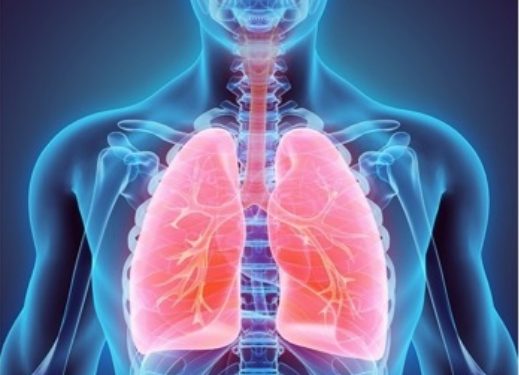Catania, 23th March 2021.A significant new three-year independent study on COPD and smoking has been released by the CoEHAR of the University of Catania (Italy), led by Professor Riccardo Polosa. The three-year ground-breaking scientific research study identifies long term health effects for Chronic Obstructive Pulmonary Disease patients (COPD) switching to heated tobacco.
“My clinical experience tells me that — quite surprisingly — most COPD smokers don’t have a good reason to quit.” says Prof. Riccardo Polosa “from the key study results that Heated Tobacco Product (HTP’s) use decreased the number of acute exacerbations of COPD by more than 40% and caused clinically significant improvements, there is a clear indication that new combustion-free technologies can be a massive remedy for COPD and this is important for physicians, patients and their caregivers.”
On the 4th March Public Heath England announced that despite reductions in smoking prevalence, smoking remains the biggest single cause of preventable death and disease, as well as a leading cause of health inequalities. Significantly it is well known that cigarette
smoking is a significant risk factor for COPD sufferers, causing over 3 million deaths and being the fourth leading cause of death globally. PHE announced alternative nicotine delivery devices that are less harmful could play a crucial role in reducing this health burden.
The Study: Stopping smoking is the only known intervention that can improve COPD and save lives, but quitting is not easy. Substitution of combustible tobacco cigarettes for combustion-free nicotine delivery alternatives such as heated tobacco products (HTPs) may lead to improvements in COPD. The study evaluated health consequences of the use of HTP’s in COPD patients.
Why?; COPD patients who smoke are better off stopping smoking, but they struggle to completely stop nicotine use. An alternative approach for patients with COPD who are having difficulty at stopping smoking is that of substituting conventional cigarettes with combustion-free nicotine delivery alternatives such as heated tobacco products (HTP). But no data is available. This is the first study to evaluate objective and subjective measures of cardiorespiratory health in COPD patients who have been daily users of HTPs. Knowledge of the long-term health impacts of HTP use in this patient population is needed to inform COPD patients and their doctors.
COPD: Chronic Obstructive Pulmonary Disease (COPD) is the name for a group of lung conditions that cause breathing difficulties, which includes emphysema and chronic bronchitis. Acute exacerbations of COPD can be triggered by a range of factors including respiratory tract infections (most commonly rhinovirus), smoking, and environmental pollutants. Individuals with COPD experience poor quality of life and die prematurely from cardiorespiratory complications. COPD kills over 3 million people each year. Continued exposure to combustible chemicals in cigarette smoke is a significant risk factor for COPD.
What is Heated Tobacco?: Heated tobacco products are specially designed tobacco sticks. They are heated by electronic devices rather than set alight and burned as cigarettes are. Also referred to as Heat-Not-Burn, the temperature that a device reaches to heat the tobacco is significantly lower than the 600⁰C at which a cigarette burns. By controlling the temperature to prevent it from combusting, a vapour is released instead of smoke. HTP’s emits on average 95% lower levels of harmful chemicals compared to cigarettes. Heated tobacco products are tobacco stick’s that are heated by battery-powered devices. Like your smartphone, these devices need to be charged regularly. Once charged, a stick of tobacco is inserted into the device. By pushing a button to begin the heating process, a user can then inhale the vapour that is released. Once the experience is over, the used tobacco stick can be removed from the device and disposed of in a bin. Heated tobacco products are not risk free.
Method of Study: Professor Ricardo Polosa monitored health parameters for 3-years in COPD patients who substantially attenuated or ceased cigarette consumption after switching to HTPs. Findings were compared to those obtained from an age-sex-matched cohort of COPD patients who continued to smoke. COPD patients regularly attending outpatient clinics in four Italian hospitals were included. Changes in daily cigarette smoking, annualized disease exacerbations, lung function indices, patients reported outcomes (CAT scores) and 6-minute walk distance (6MWD) from baseline were measured in COPD patients using HTPs at 12, 24 and 36 months. These were compared to a group of age- and sex-matched COPD patients who continued smoking.
Results of Study: HTPs use decreased the number of acute exacerbations of COPD by more than 40% and caused clinically significant improvements in QoL and in the ability to exercise, whereas no changes were observed in COPD patients who continued smoking. HTPs were well tolerated. Complete data sets were available for 38 patients (19 in each group). Subjects using HTPs had a substantial significant decrease in annualized COPD exacerbations within the group mean (±SD) from 2.1 (±0.9) at baseline to 1.4 (±0.8), 1.2 (±0.8) and 1.3 (±0.8) at 12-, 24- and 36-month follow-up (p<0.05 for all visits). In addition, substantial and clinically significant improvements in CAT scores and 6MWD were identified at all 3 time points in the HTP cohort. No significant changes were observed in COPD patients who continued smoking.
Conclusion of Study: Consistent improvements in respiratory symptoms, exercise tolerance, quality of life, and rate of disease exacerbations were observed in patients with COPD who abstained from smoking or substantially reduced their cigarette consumption by switching to HTP use. This study is the first to describe the long-term health effects of HTP use in COPD patients. Consistent improvements in respiratory symptoms, exercise tolerance, quality of life, and rate of disease exacerbations were observed in patients with COPD who abstained from smoking or substantially reduced their cigarette consumption by switching to HTP use.






